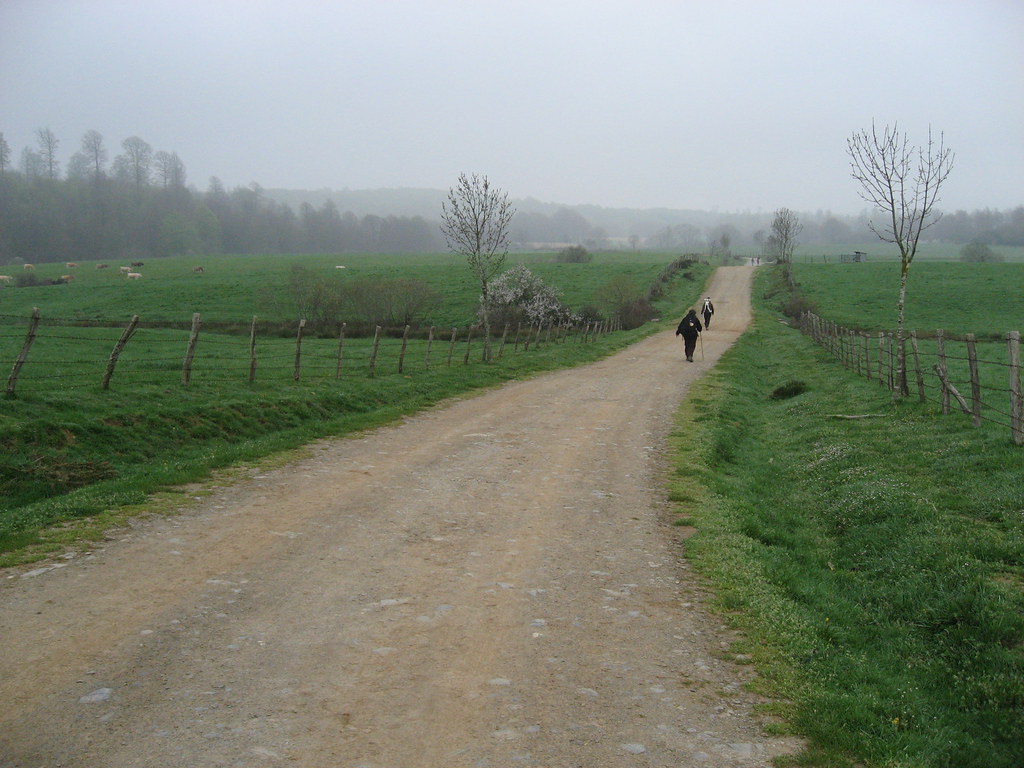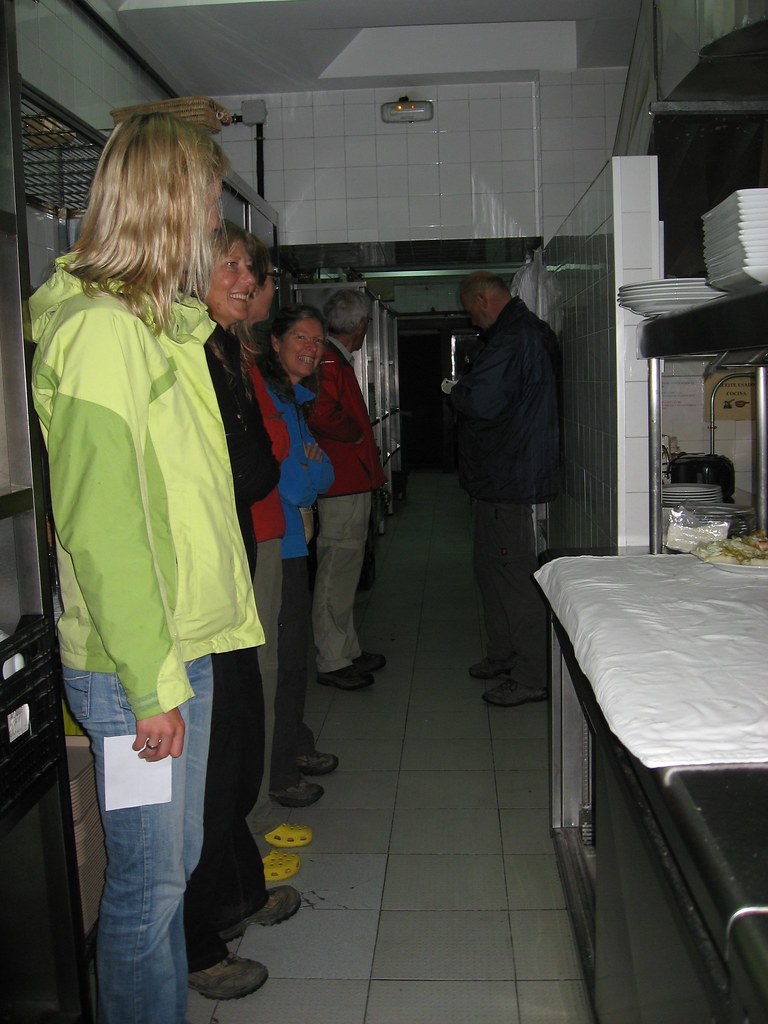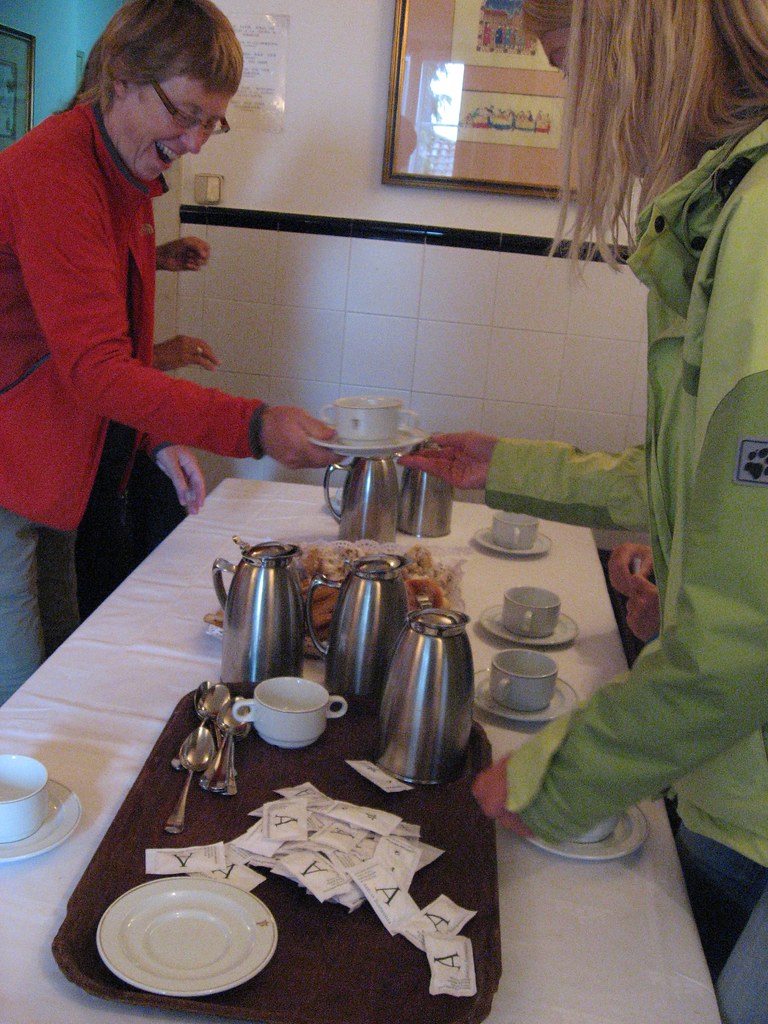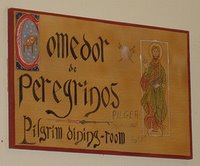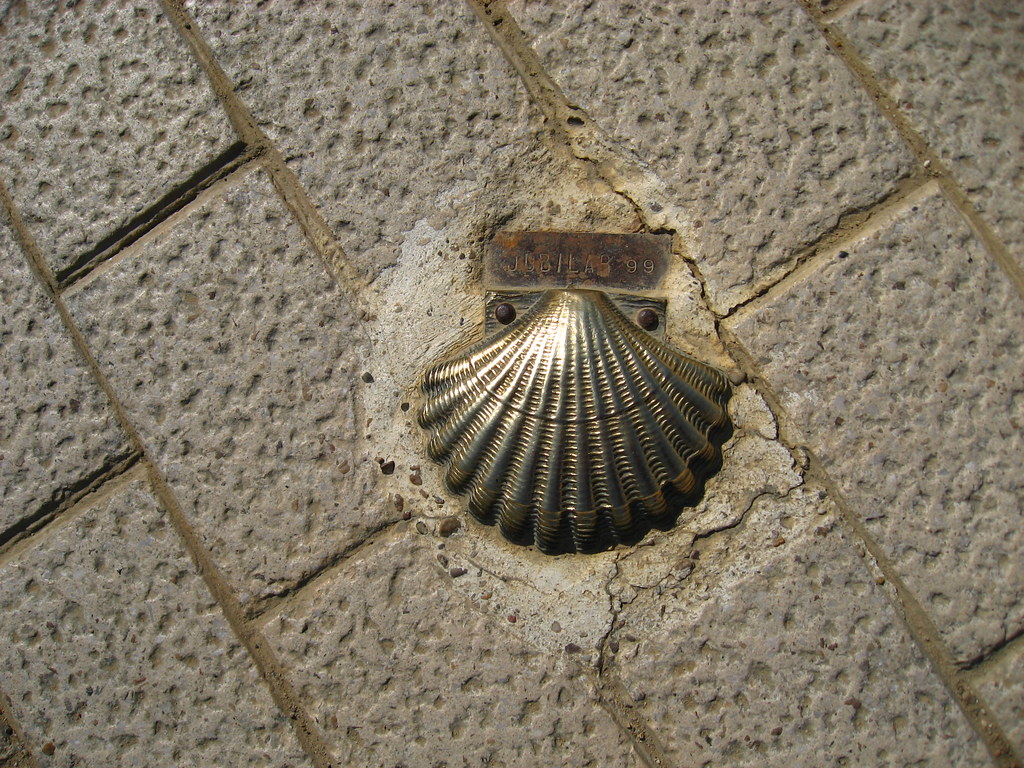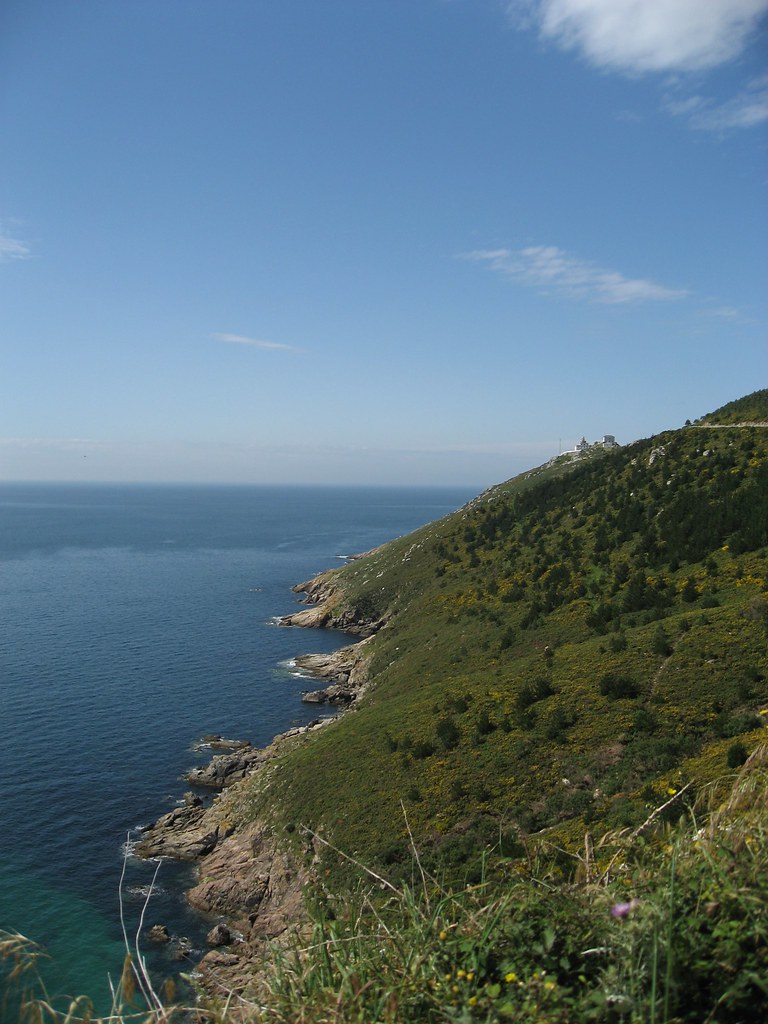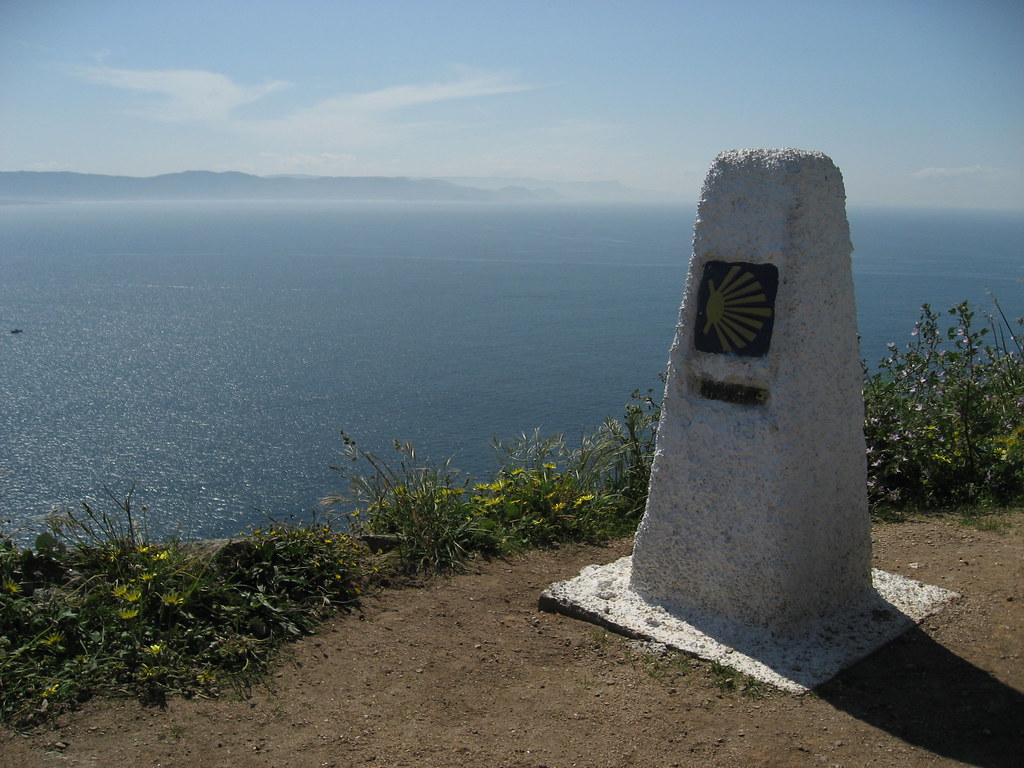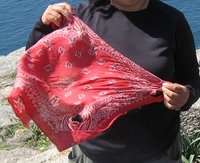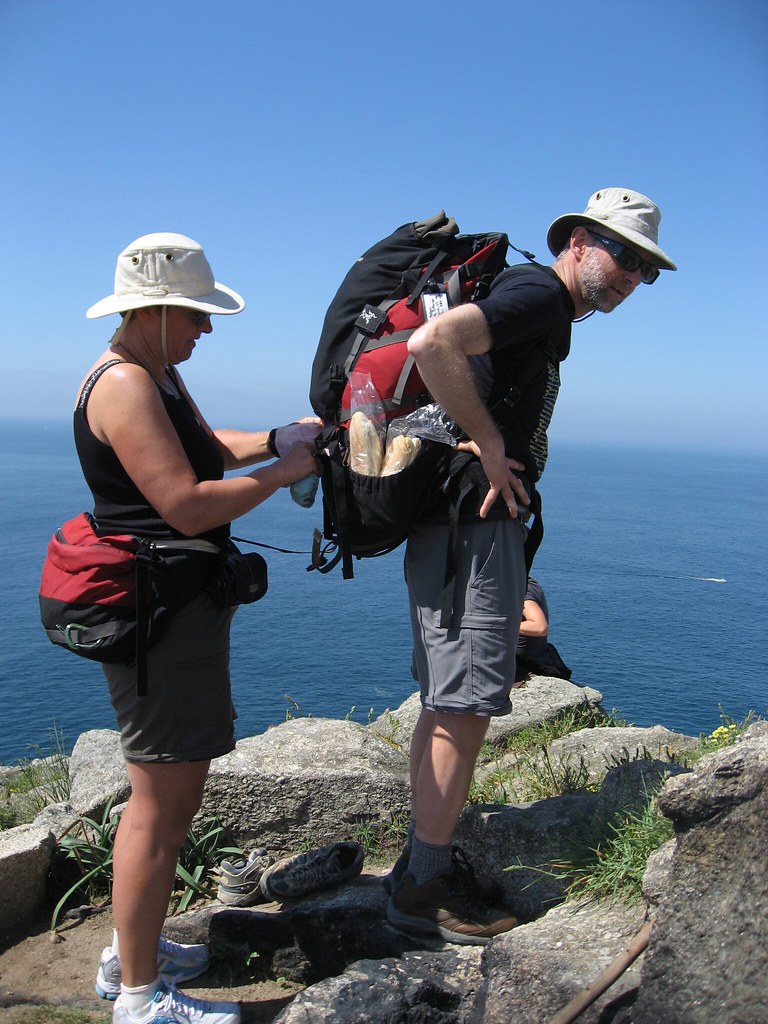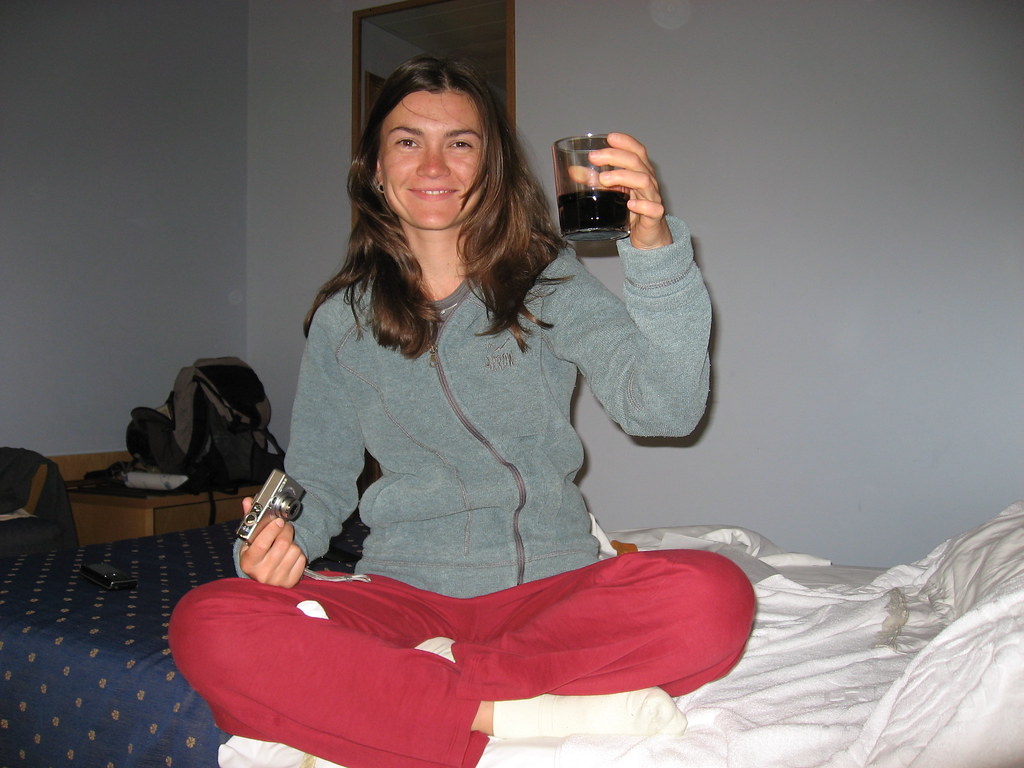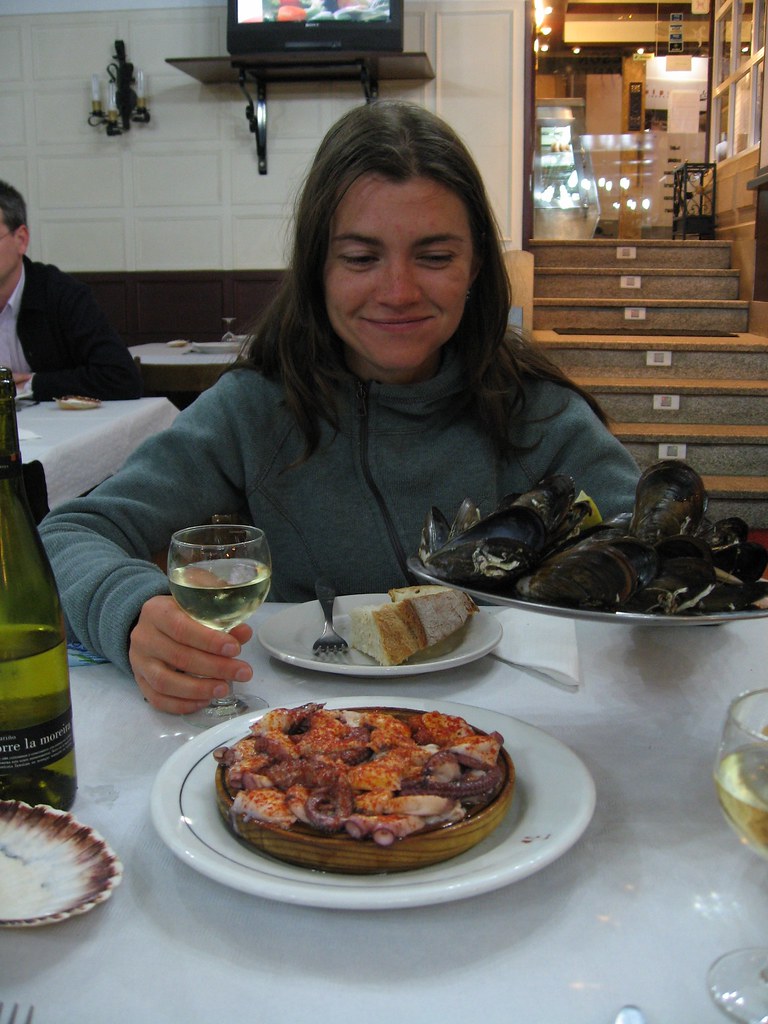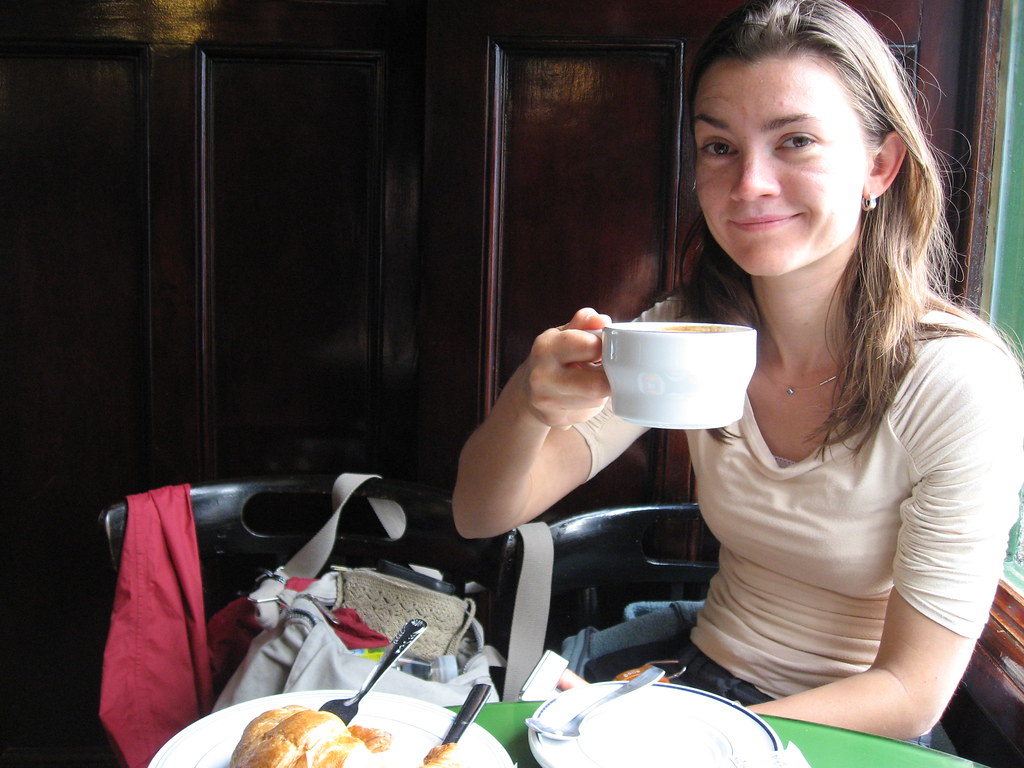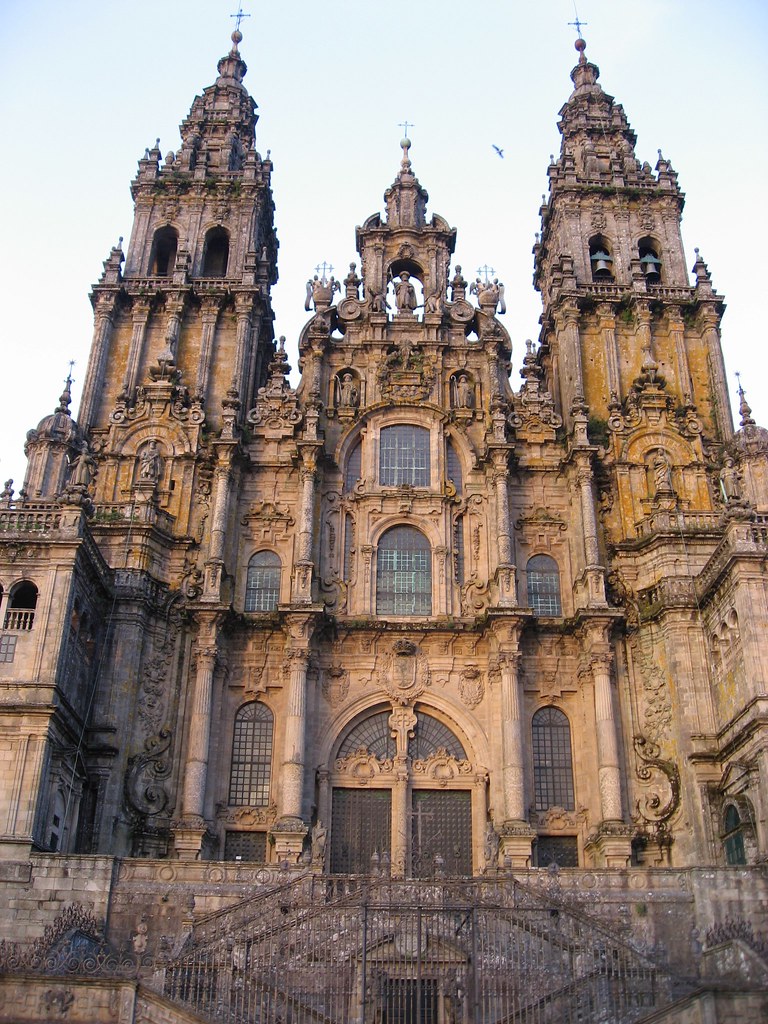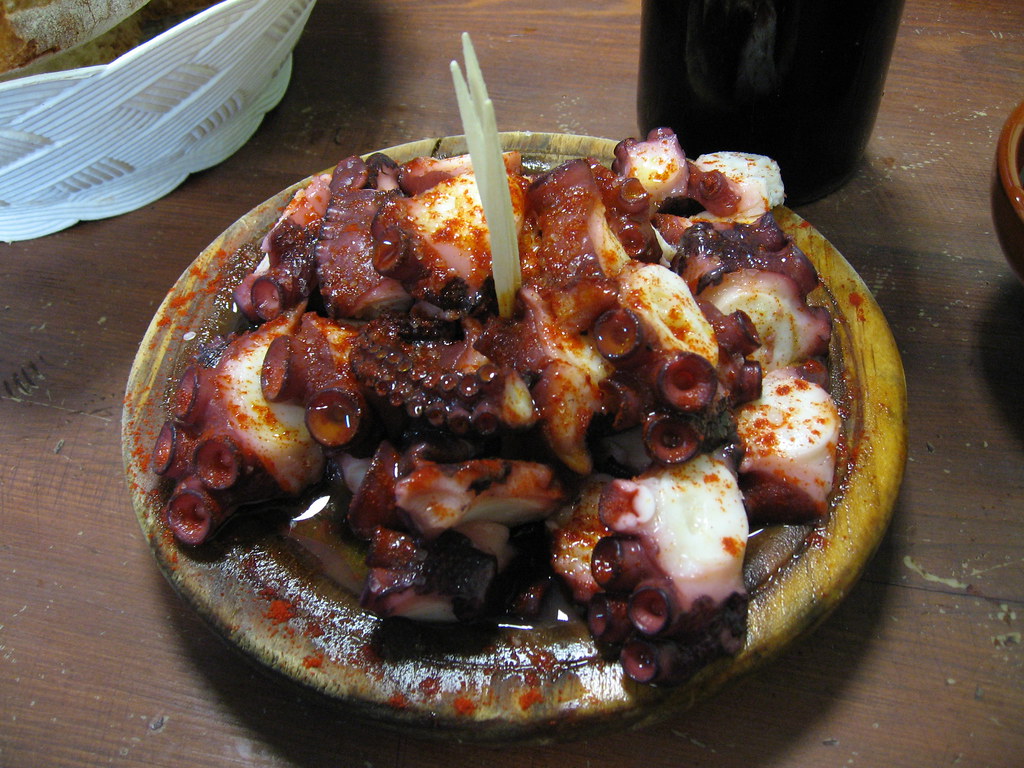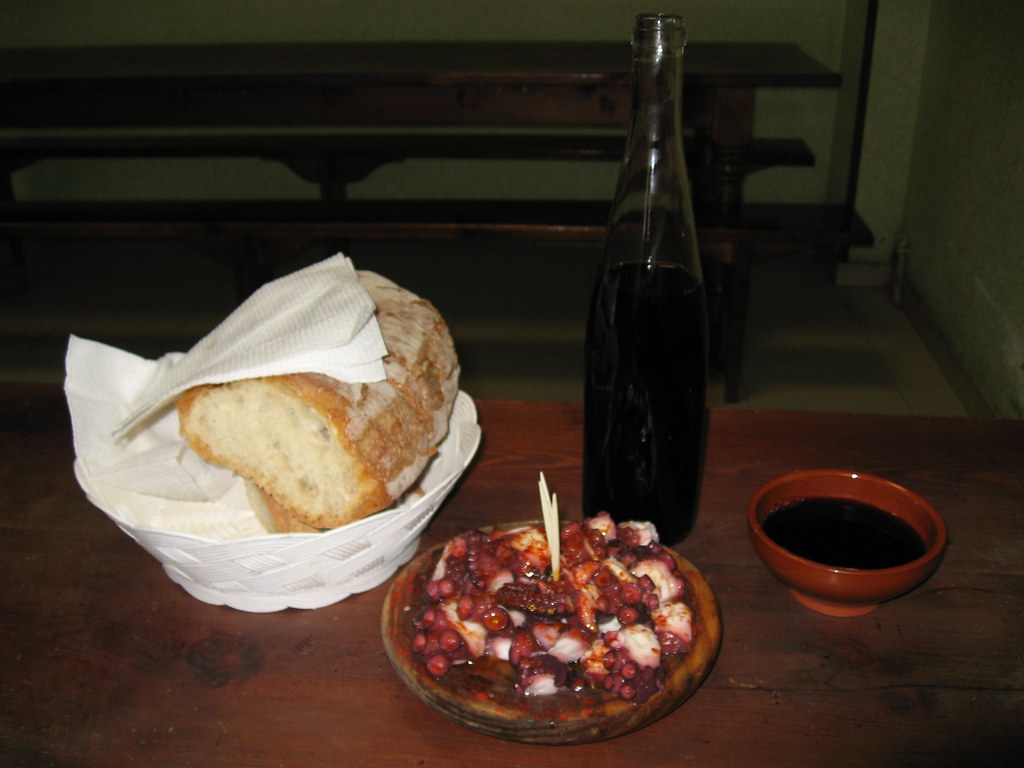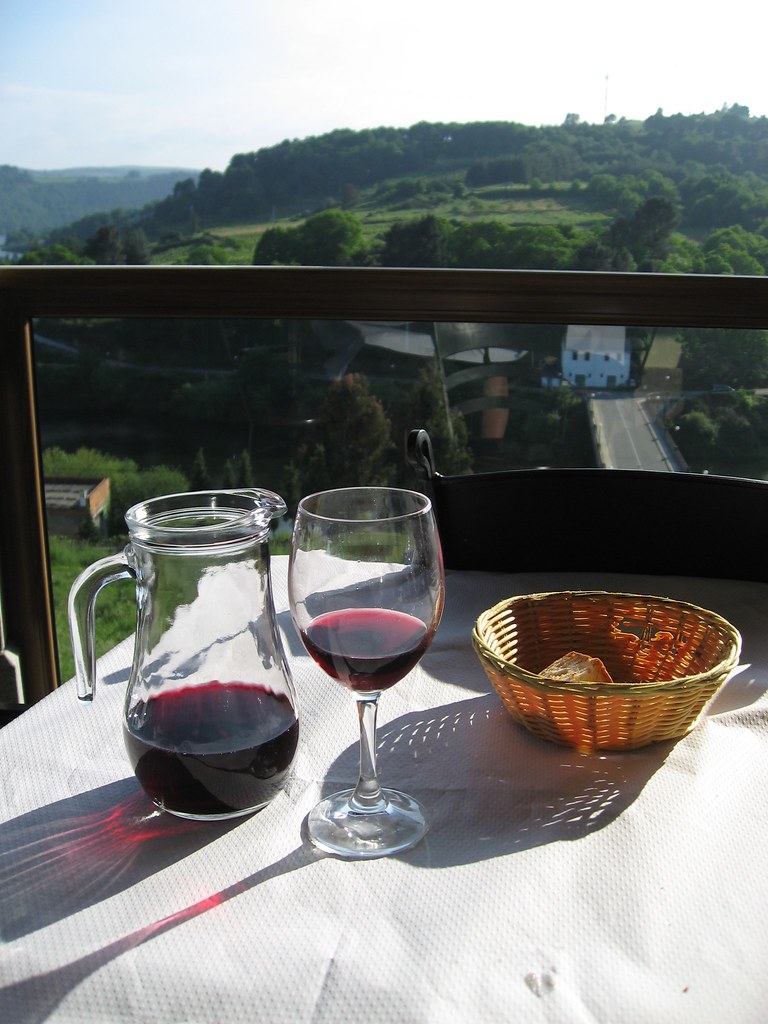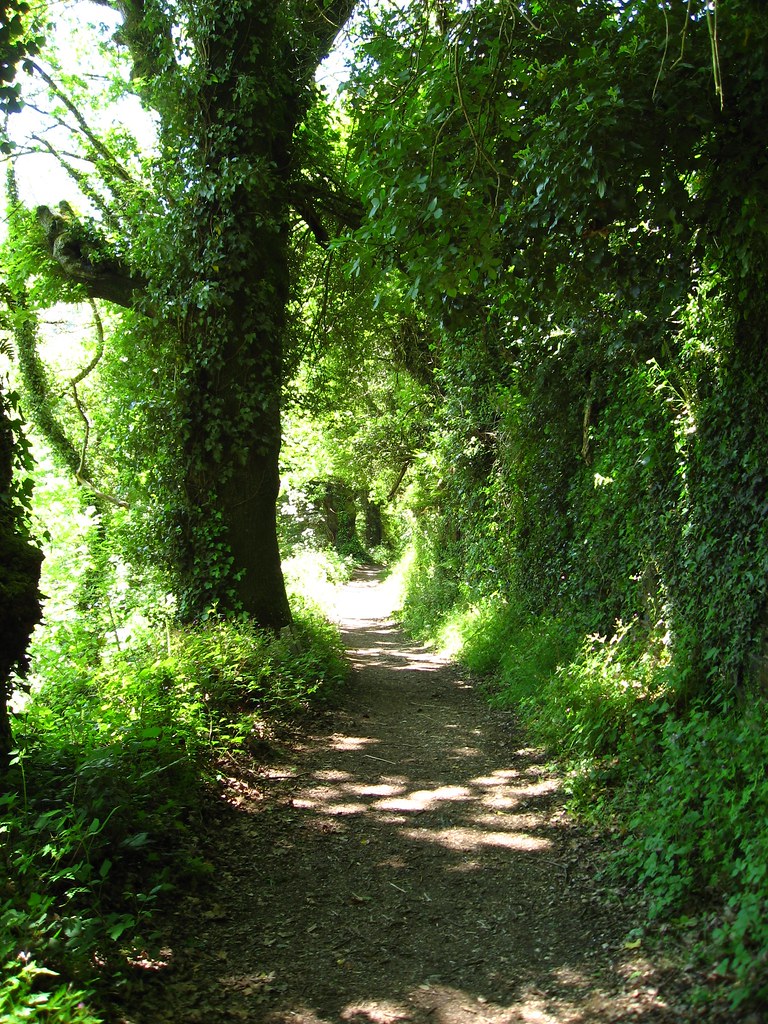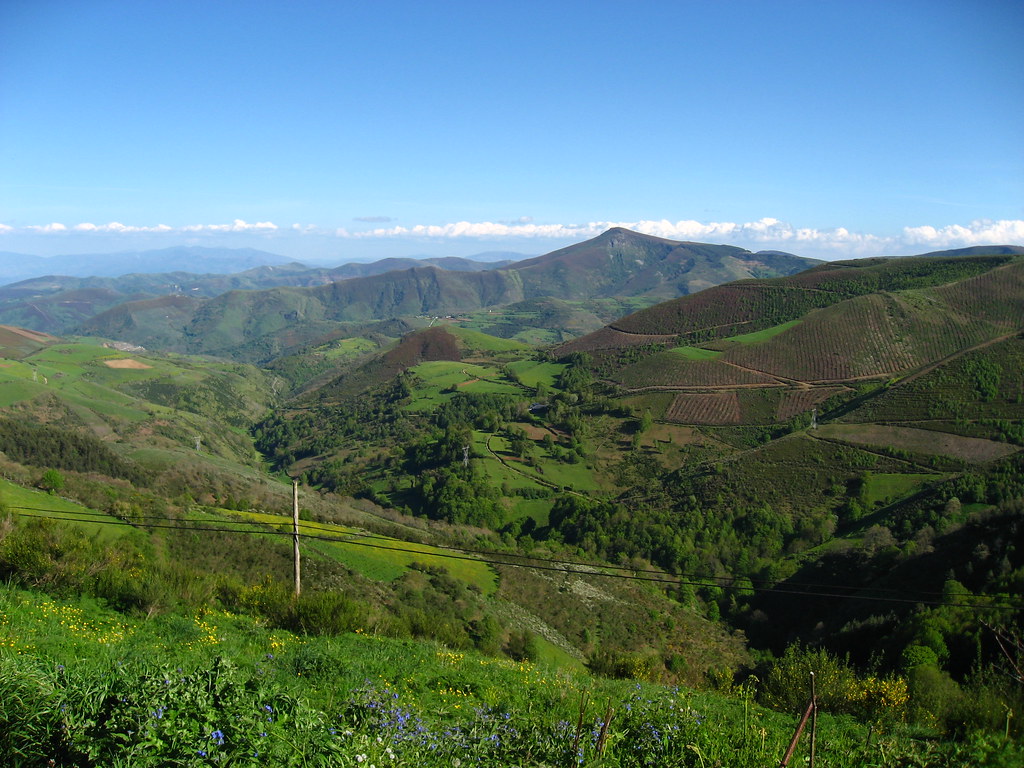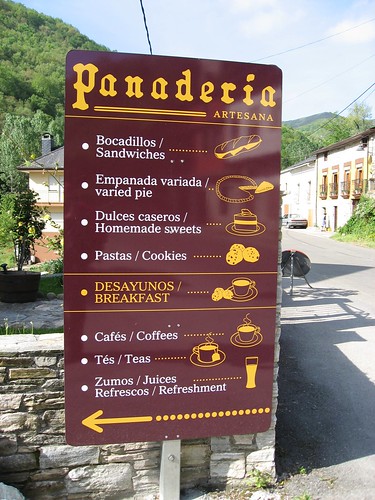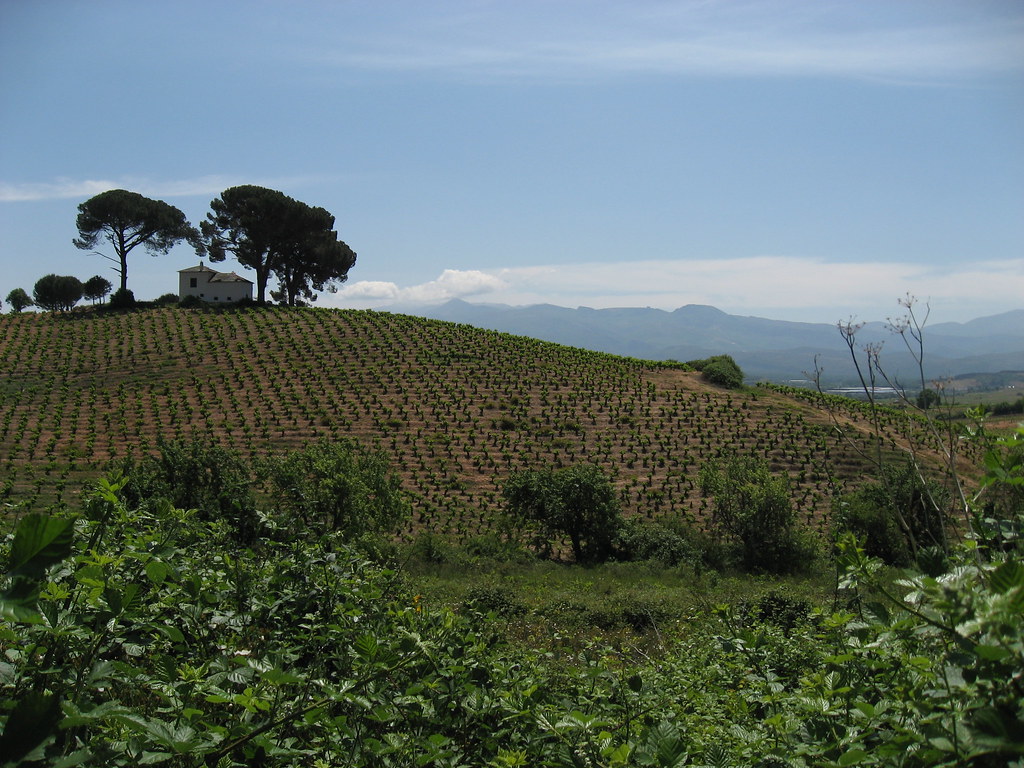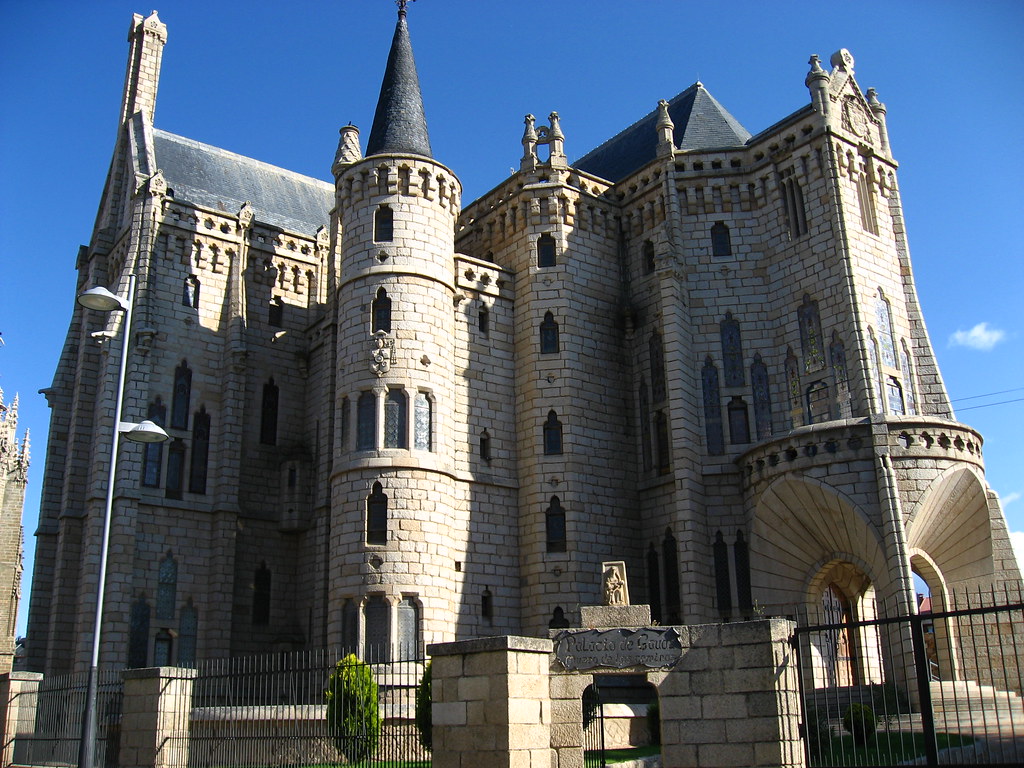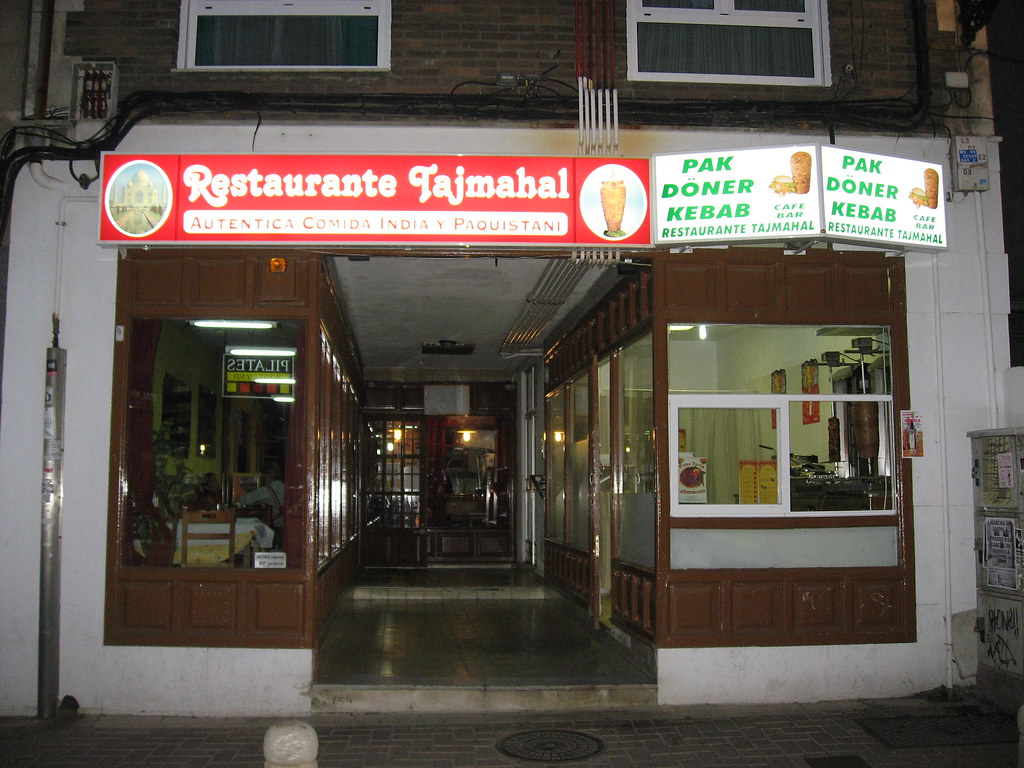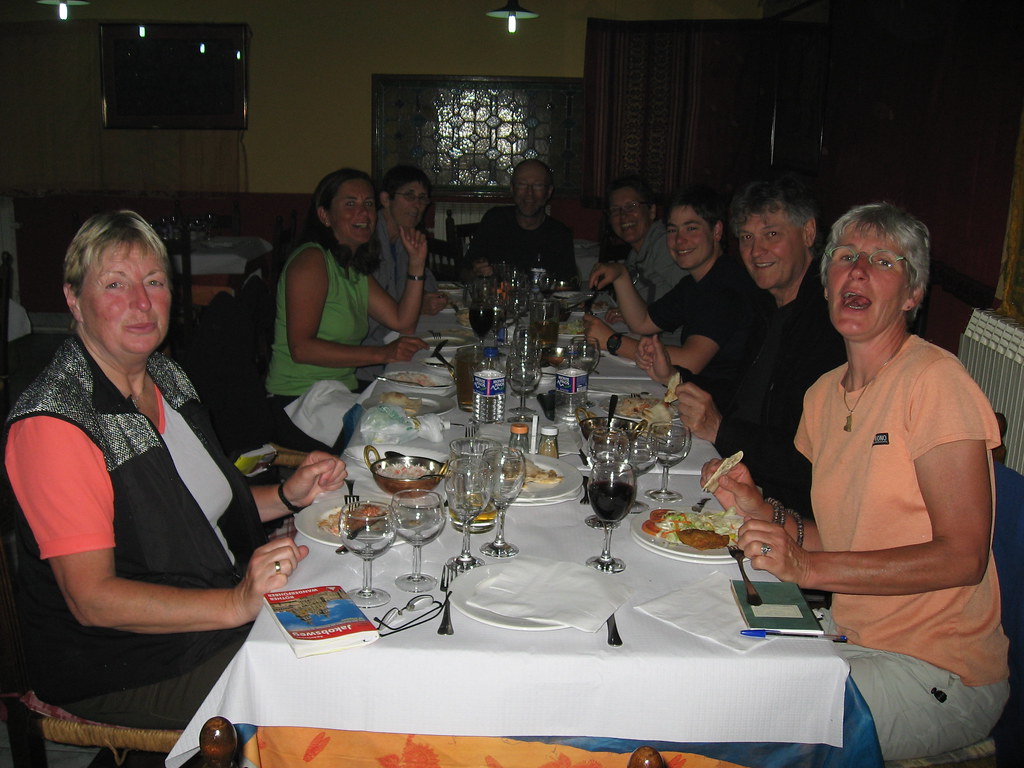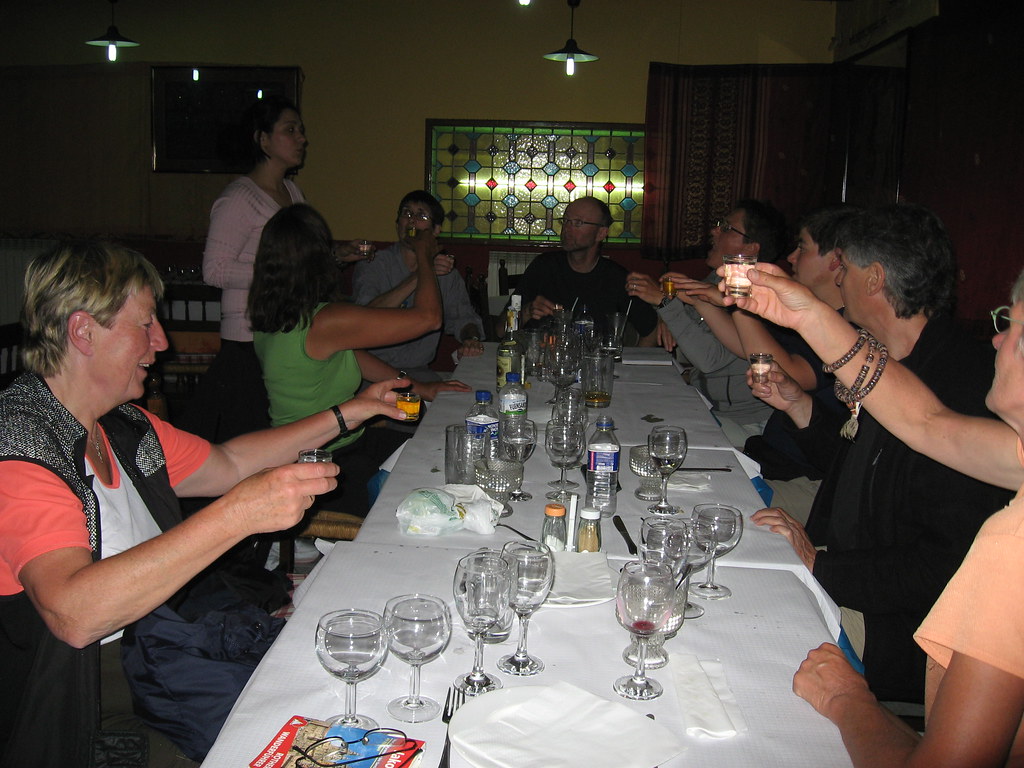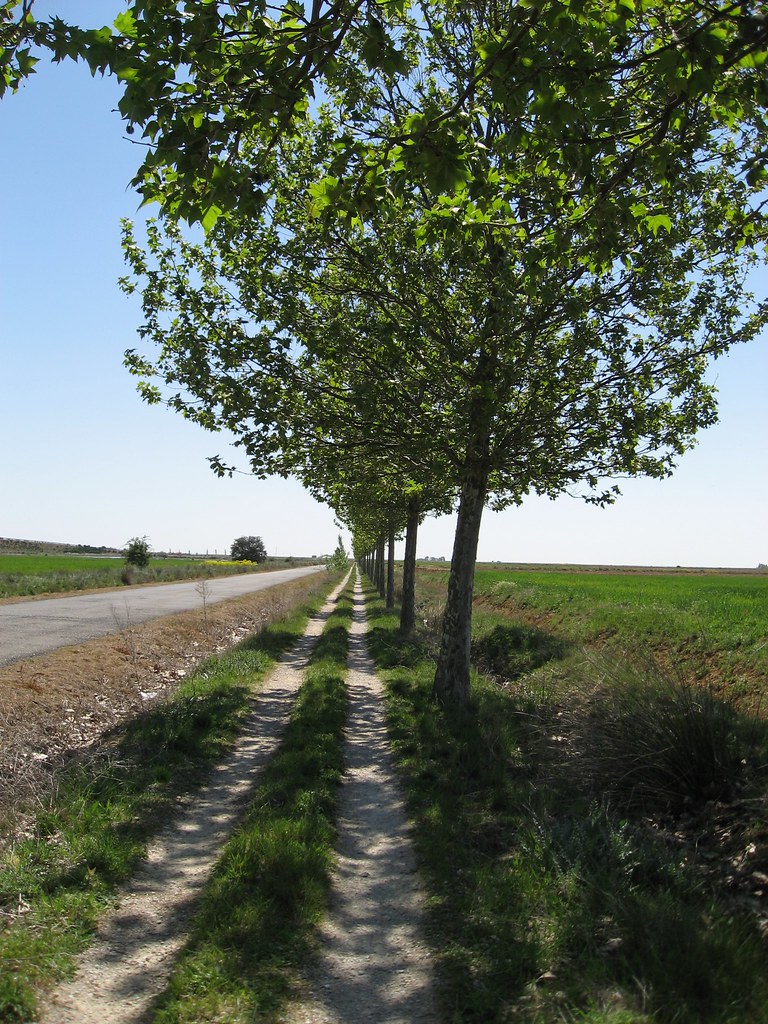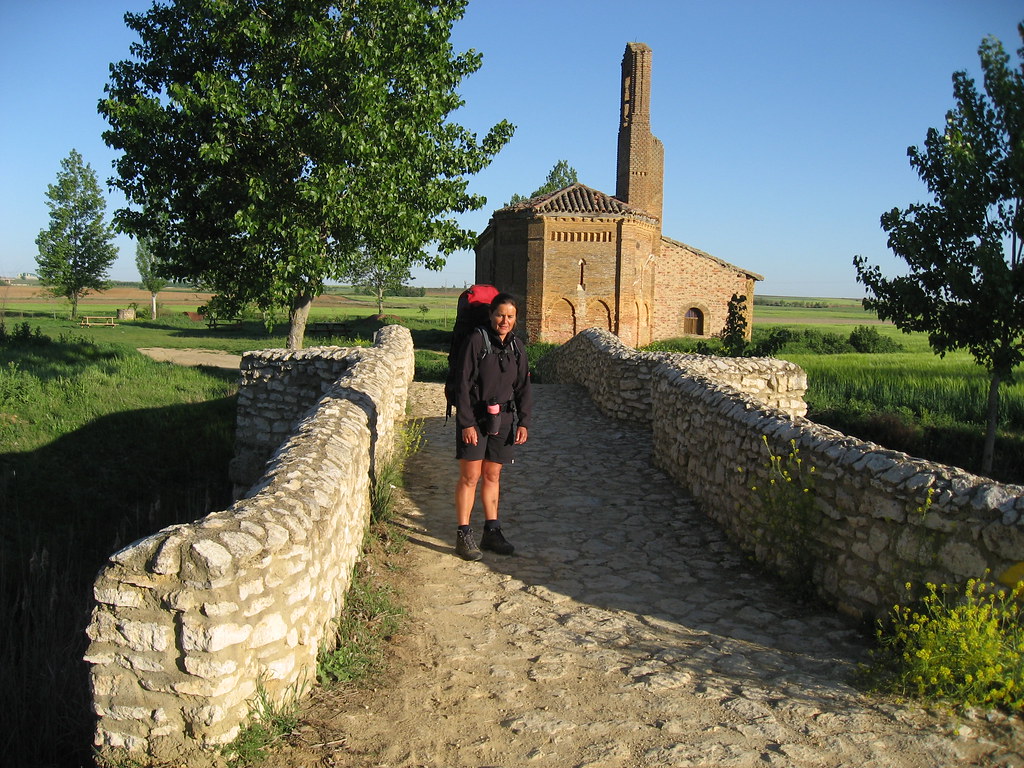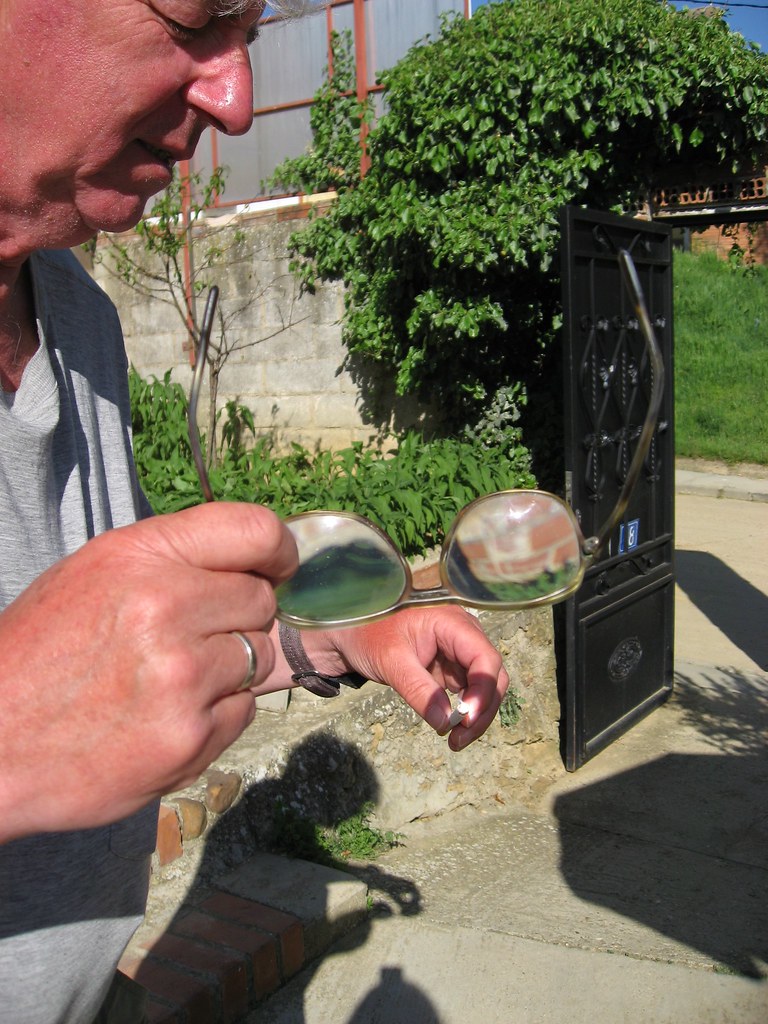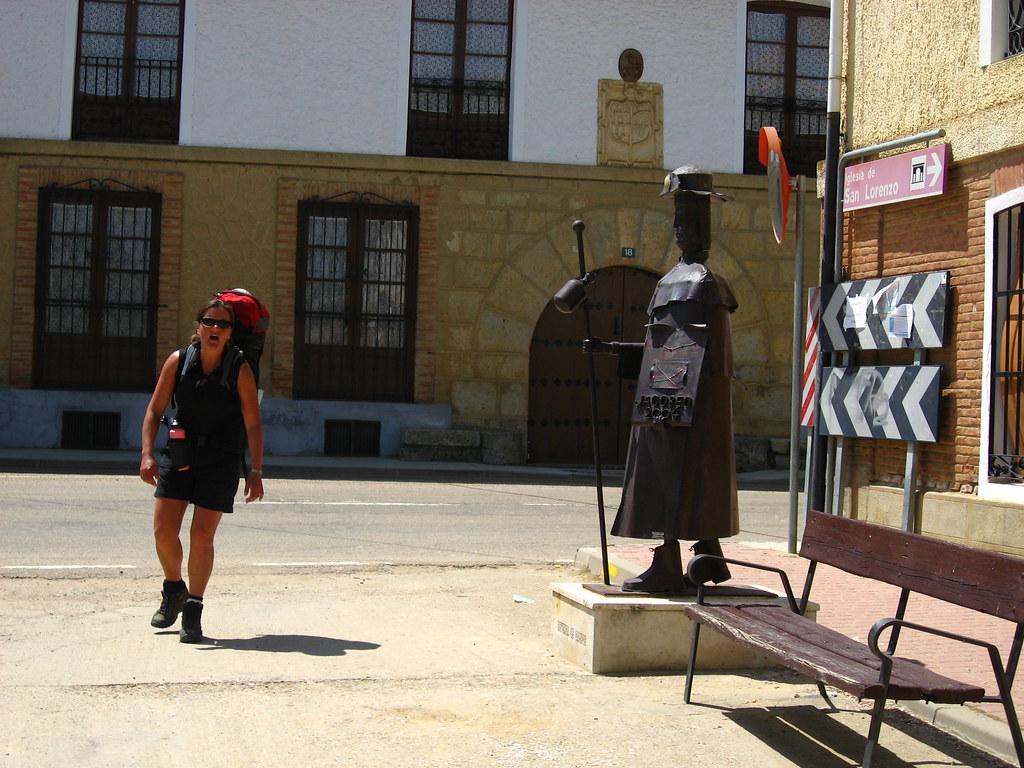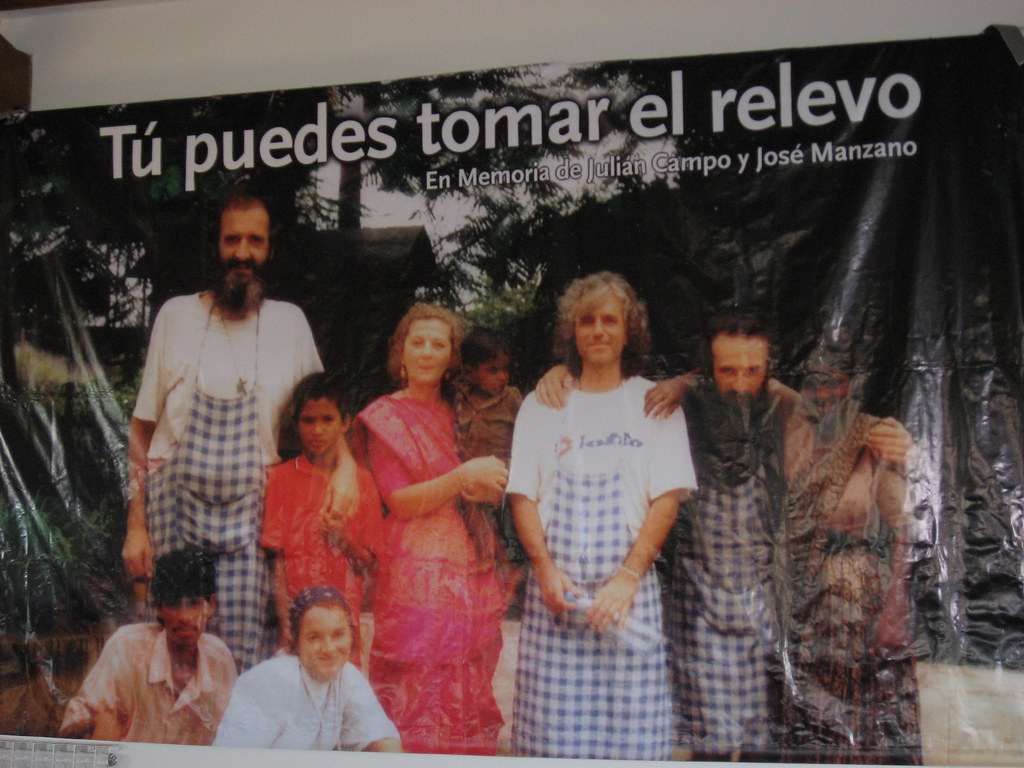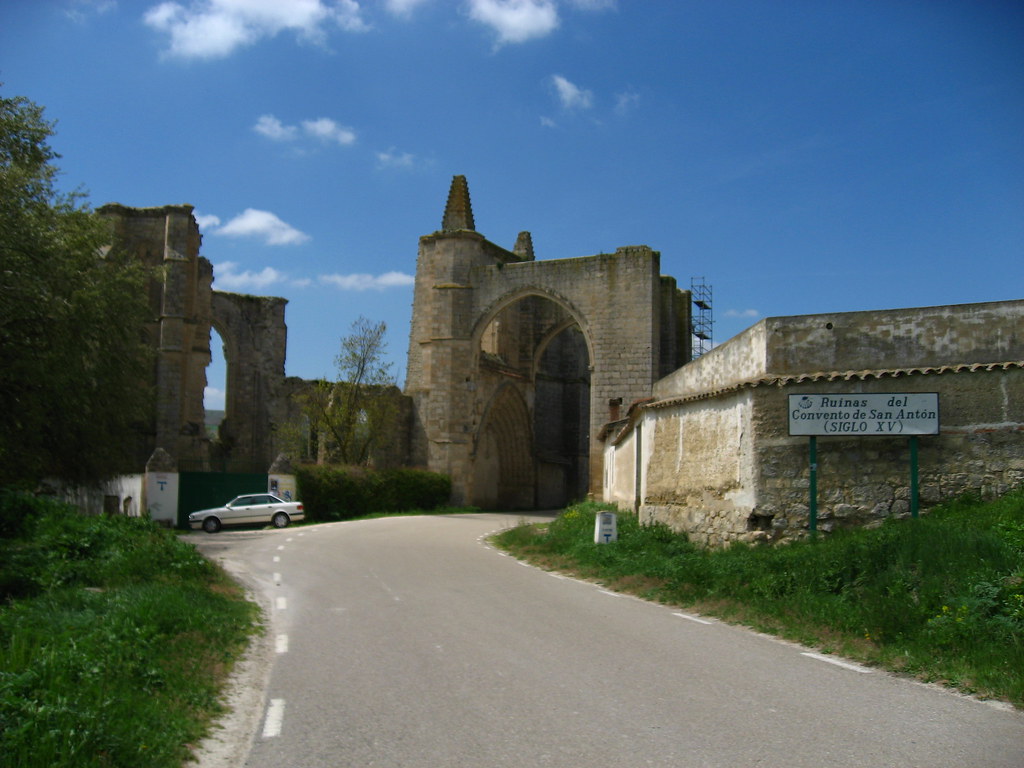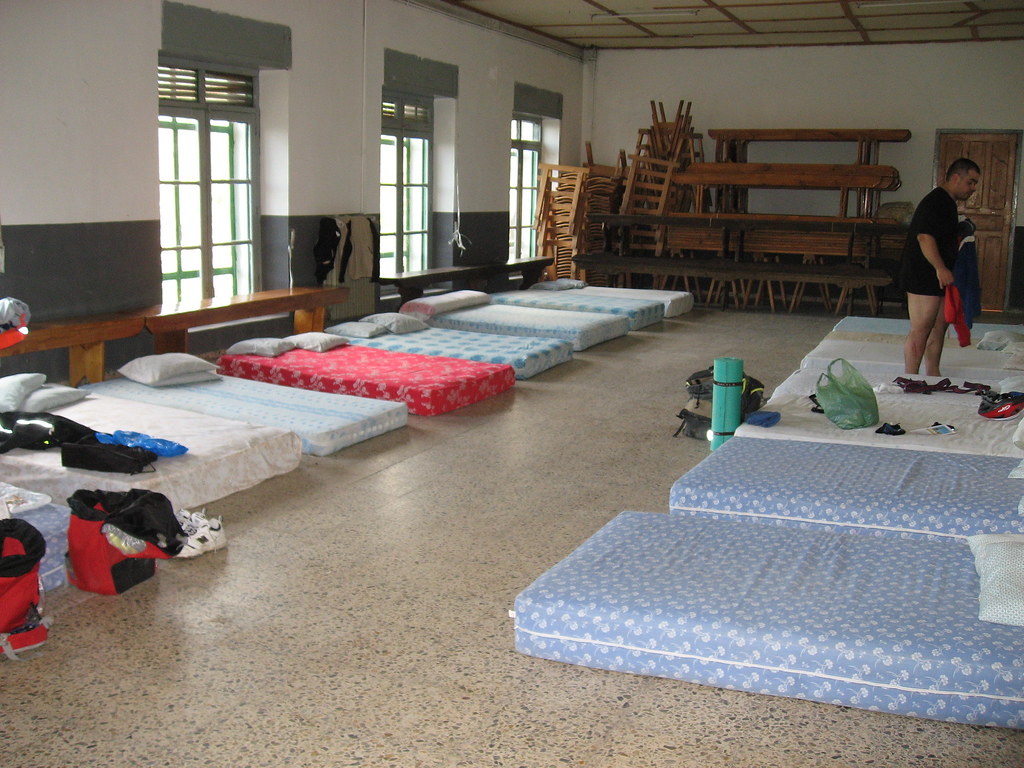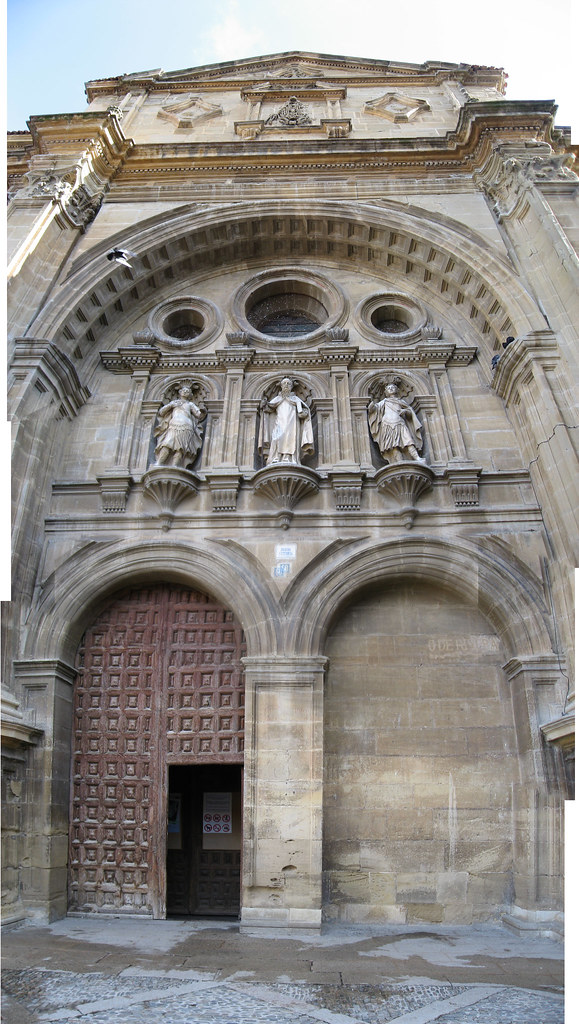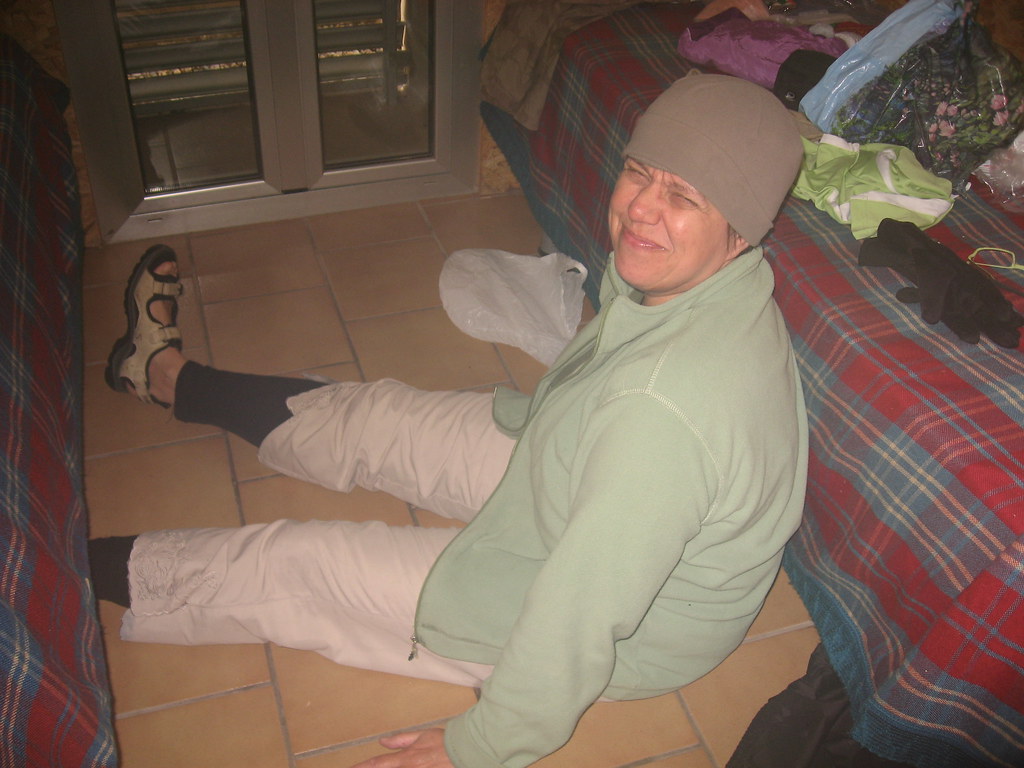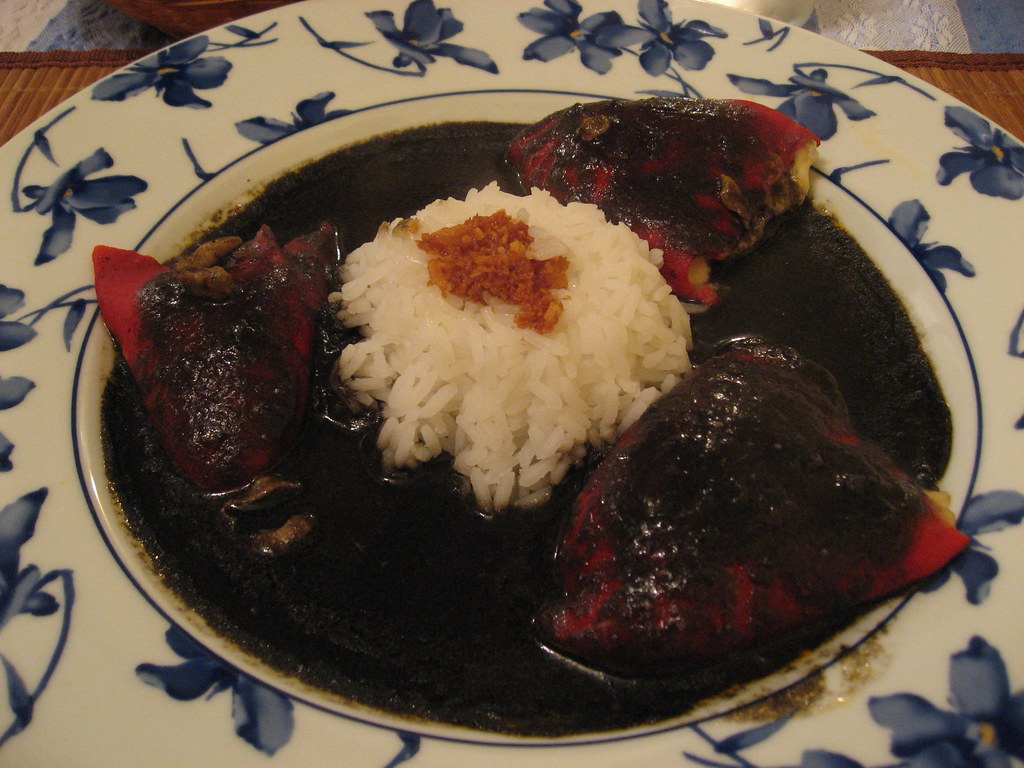Staying in an albergue, most often you will be roused by a number of others rustling & packing at roughly 6 am. Sometimes, if you are the soul who wakes up in the dark first, you try your darndest to pack blindly, turning on an annoyingly bright flashlight, or you get the honour of rustling first. (Thankfully having practiced packing, I have most things in their place before I go to bed, so it's just feeling around.)
 (Albergue in Roncesvalles; Photo from: Lee Nelson's Camino photos)
(Albergue in Roncesvalles; Photo from: Lee Nelson's Camino photos)Once the chorus of snoring slowly cross fades into plastic bag stuffing, someone generally turns on the light and the rustling crescendoes.
There are a few individuals who sleep through this (or attempt to by cocooning themselves in their sleeping bag) but the majority of pilgrims are up & busy with their morning routine in a matter of minutes.
Some choose to eat breakfast before they start. Most will have purchased some bread & cheese, perhaps fruit, & especially coffee. Usually, no shops are open until 10am (on a good day you can find a bar open for coffee & breakfast at 7 or 8) so many buy rations before the shops close to ensure a few items para el desayuno...
I tend to hit the road as soon as I've packed and brushed my teeth. Lately, this is around 6:30am, & it is still dark out. I have trouble sleeping through the night & tend to lie in bed until about 5:30am, but I think I might start taking advantage of leaving earlier, & just go.
 Its lovely time of day, & as long as your paying attention you will find the yellow arrows guiding you on the way out of wherever you are. The danger in walking in the dark is getting lost, but most of the time its fairly easy to find the end of town.
Its lovely time of day, & as long as your paying attention you will find the yellow arrows guiding you on the way out of wherever you are. The danger in walking in the dark is getting lost, but most of the time its fairly easy to find the end of town.
For me, if I can consistently walk until the first stop, I can clear 15-17km without problems, as the sun isn't up and I am ready to go, @ almost 4 km/hr.
If there is a cafe open within the first 3 hours, it's a plus; a quick café cortado, & if available, a pastry (like a croissant) will do the trick for the next leg. If not, I usually have a day old self-made bocadillio (con jamon serrano y queso) that I keep for emergencies. If I can grab an apple at the mercado the day before, or a juice box for vitamin c, I usually take it at the 3 hour break. But most of the time I don't really eat along the way, but don't do as often as I should.
This probably is the reason that I am almost half my pace after hour 5. Things begin to hurt (though less now in the feet, as I think every nerve is dead in both.) As much as the morning is clear and I move with vigor, the next stretch is purely psychological.
Between hour 4 & 5 my brain starts computing the distance I've walked, the distance I still want to cover, how many days its been, how long left to Santiago. I think about how nice it would be to just stop walking, or what it would be like to eat a tub of popcorn at the drive-in. I think about the txts and great msgs I have read the night before, and try desperately to detract my mind from my feet and automatic steps. I think about the things I want to be doing & what I should be doing, and what will be the next step. I think about people at home, about dedicating the day to someone, & also thinking about the people I've met so far.
I even try to stop thinking sometimes during long stretches and meditate by focusing on a point in the distance. "Breathe in peace, breathe out I smile," (thank you, Indira!) or sometimes I just focus on my breath.
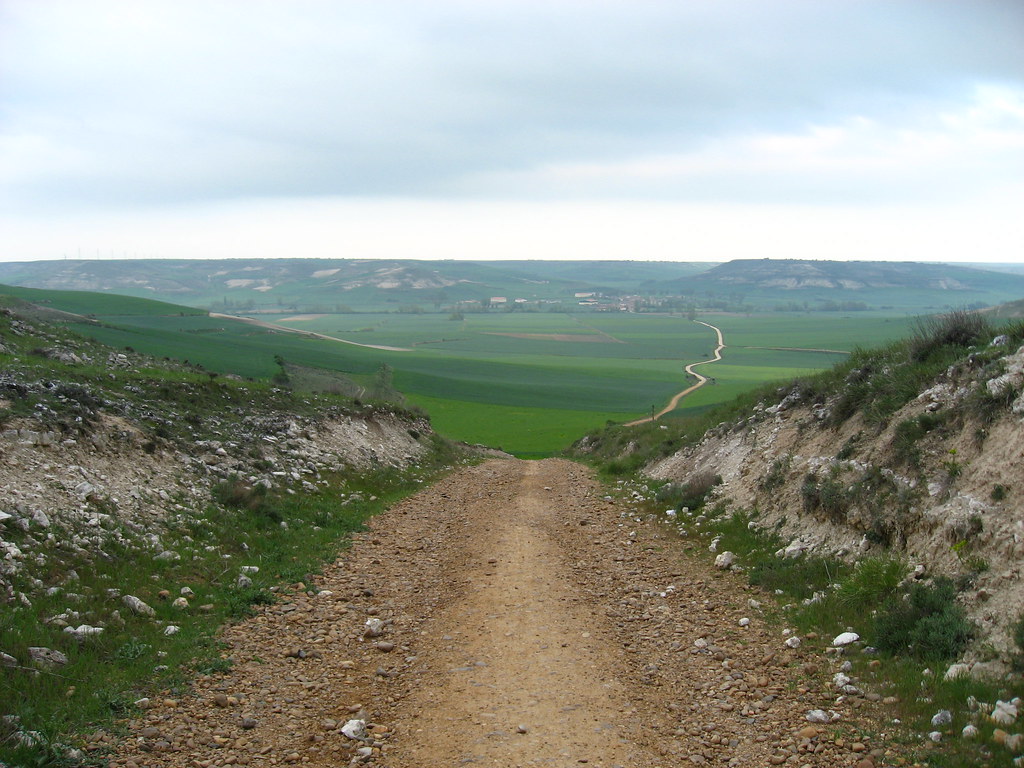 Depending on the day, I have usually cleared between 25km by noon. Which means, if its a place to stop, then I look for an albergue. But noon is VERY early, and going for that extra 8km is always looming. Certain things (like Mariette) can keep me going, but on my own, 27km @ noon means I can stop if I want to. 38km by 2 or 3 pm is even better, but there are days that you just want to stop.
Depending on the day, I have usually cleared between 25km by noon. Which means, if its a place to stop, then I look for an albergue. But noon is VERY early, and going for that extra 8km is always looming. Certain things (like Mariette) can keep me going, but on my own, 27km @ noon means I can stop if I want to. 38km by 2 or 3 pm is even better, but there are days that you just want to stop.
Once a pilgrim stops for the day, the routine usually consists of greeting the hospitalero or albergue receptionist (sometimes it's at the local bar), getting one's credencial stamped with the establishment's sello, and paying for a bed. Most often placing ones "botas" (boots) at the door (cause damn, they're stinky) is a rule, and then selecting a bed.
If you're at an albergue between 1 & 2pm, you're likely to get a bottom bunk. Anytime past 3 (& depending on how big the stop is) and the albergue municipal can be fairly full.
If your feeling a bit more luxurious, you may consider staying @ a albergue privado, hostal or a pension which can cost double what you pay at an albergue. Some albergues are better than others, and some are even para donativo (by donation), which is a lifesaver for those short of cash. Cleanliness & bed comfort varies from place to place, bigger towns often have bigger or more albergues, but its a luck of the draw with quality, and even a private room in a hostel or a hotel (the most expensive option) can be less than satisfactory.
 Once you've picked a bunk, more often than not, one unpacks the towel & soap for a shower, and then does laundry. Most pilgrims take advantage of the sunlight to dry clothes... Plus its just easier to do everything earlier, garnering a bit of journaling time, or time enough to have a quick siesta in the sun (if available.)
Once you've picked a bunk, more often than not, one unpacks the towel & soap for a shower, and then does laundry. Most pilgrims take advantage of the sunlight to dry clothes... Plus its just easier to do everything earlier, garnering a bit of journaling time, or time enough to have a quick siesta in the sun (if available.)
(Pilgrims can get very creative with drying their laundry. Photo from M&M's gallery.)
If you roll in around 3pm, you can probably time it out to finish showering, washing & hanging your clothes, and doing foot care (its all about foot inspection with the pilgrims) before taking a "limping" tour of the village.
On a good day, (& especially not on a Sunday) you can find a mercado or a small tienda with stuff you can buy - either for the next day or for dinner. Most shops open after siesta at about 4:30-5pm until 8pm. In an albergue wth a kitchen many pilgrims shop and then will cook, & sometimes it becomes a potluckwith wine and more than enough for everyone.
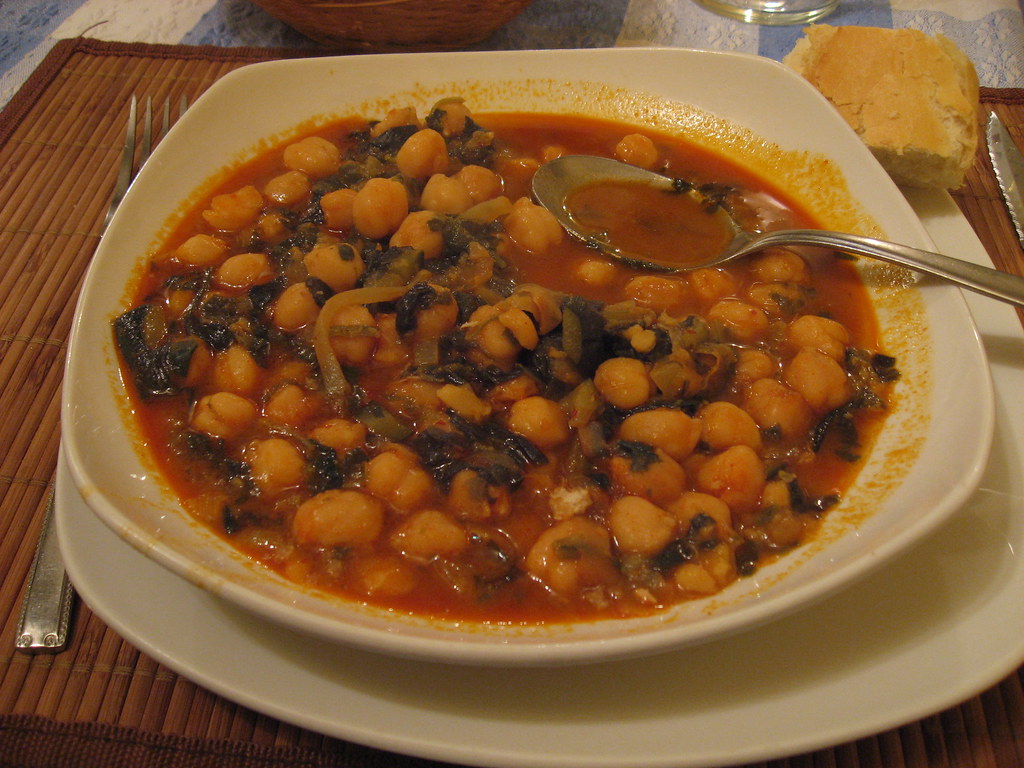 Other pilgrims will take advantage of the Menu del Peregrino, which usually consists of la plato primero (most often spaghetti or salad or white aparagus or soup) & la segundo (some kind of meat and a few fries, fish and fries, tortilla - which is an omlette) and una postre (dessert which can be fruit, yogurt, flan, or helado - ice cream.)
Other pilgrims will take advantage of the Menu del Peregrino, which usually consists of la plato primero (most often spaghetti or salad or white aparagus or soup) & la segundo (some kind of meat and a few fries, fish and fries, tortilla - which is an omlette) and una postre (dessert which can be fruit, yogurt, flan, or helado - ice cream.)
The menu del peregrino usually comes with vino or agua, and can cost between 7 - 10 euros depending where you are. If your lucky you may get something different, but its a very similar menu del peregrino across the camino, and its only the preparation of these that makes the difference. Its not too bad, as it is the main meal of the day, and because its not served usually until 7 or 8pm, pilgrims roll into bed immediately after.
 Again, depending on where you are, dinner (& just before it, when all the hungry pilgrims are waiting) is probably the most communal time of the day. Talking with familiar faces from the road, or sharing stories with new friends that you've seen for the last 3 days is a treat.
Again, depending on where you are, dinner (& just before it, when all the hungry pilgrims are waiting) is probably the most communal time of the day. Talking with familiar faces from the road, or sharing stories with new friends that you've seen for the last 3 days is a treat.
Once you've had la cena, most pilgrims brush teeth & head to bed. Many are in bed before 9:30pm. If you've happened to have a late dinner, you have to make sure you get back to the albergue before curfew @ 10:00pm, & quite often the lights are usually out by then.
If you are early, and have a good set of earplugs, you're on your way to a good several hours of sleep. If your late, and don't have earplugs, God bless you, as the snorers will be in full strength by the time you tiptoe into your sleeping bag.
If you are smart, you will have collected your washing before dinner and laid out everything for bedtime so it's an easy slip into the dark, snoring room. If your a light sleeper like me, you'll be up easily at 5:30am and ready to go with all your stuff.
And so you fall asleep with food and wine in your belly, and your wonder earplugs (in my case, the best in-ear earphones with my ipod) until that early morning rustling begins and the day of a peregrino starts again.
And that, my friends, is a typical day (for me at least) on the camino.
